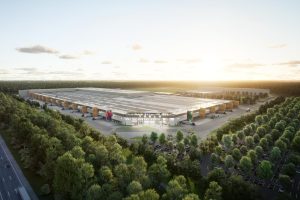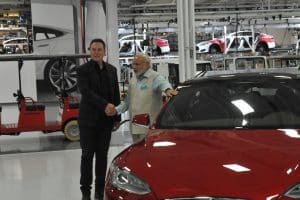- 🚗 Tesla surpassed Mercedes-Benz to become South Korea’s second-largest vehicle importer in March 2024.
- 📈 South Korea saw a 6% increase in newly registered imported vehicles in March 2024 compared to March 2023.
- 🏎️ Tesla accounted for 6,025 units out of 25,263 imported vehicles registered in South Korea in March 2024.
- 🥇 BMW was the top vehicle importer in South Korea for March 2024, with 6,549 units.
- 🚘 Tesla’s momentum in South Korea coincided with government EV incentives introduced the previous month.
- ⏳ Mercedes-Benz experienced delivery delays due to political tensions in the Middle East, leading to decreased vehicle registrations.
- 🛒 The Tesla Model Y outsold its rivals in South Korea in March 2024, with 5,934 units sold.
- 💰 The Model Y’s popularity in South Korea may be attributed to its relatively affordable price compared to its US counterpart.
- 🌐 Other variants of the Model Y and the upgraded Model 3 sedan are currently unavailable in South Korea.
In a dramatic turn of events, Tesla has maneuvered its way into the heart of South Korea’s automotive market, overtaking the established giant, Mercedes-Benz, to claim the coveted spot of the country’s second-largest vehicle importer. The data from March 2024 reveals a seismic shift in consumer preferences and market dynamics, highlighting Tesla’s meteoric rise in the region.
Unveiling the Numbers
The statistics paint a vivid picture of Tesla’s ascension. With a staggering 6,025 units registered out of a total of 25,263 imported vehicles, Tesla’s imprint on South Korea’s automotive landscape is undeniable. This surge comes amidst a 6% increase in overall imported vehicle registrations compared to the same period last year, signaling a growing appetite for foreign automotive brands in the country.
Behind the Numbers: Factors Driving Tesla’s Triumph
- Government Incentives: Tesla’s surge aligns with the introduction of government incentives aimed at promoting electric vehicles (EVs). As policymakers prioritize sustainability and emissions reduction, consumers are incentivized to embrace electric alternatives, bolstering Tesla’s appeal.
- Supply Chain Disruptions: While Tesla capitalized on favorable market conditions, competitors like Mercedes-Benz faced delivery delays due to geopolitical tensions in the Middle East. These disruptions hampered Mercedes-Benz’s ability to meet consumer demand, providing Tesla with a strategic advantage.
The Model Y: A Game-Changer
Central to Tesla’s triumph is the remarkable performance of its Model Y. With 5,934 units sold, the Model Y emerged as the undisputed champion in South Korea’s competitive automotive arena. The Model Y’s success can be attributed to its affordability relative to its US counterpart, offering consumers a compelling value proposition without compromising on quality or performance.
Looking Ahead: Opportunities and Challenges
While Tesla’s triumph is cause for celebration, challenges loom on the horizon. The unavailability of certain Tesla variants, including the upgraded Model 3 sedan, underscores the need for sustained investment in infrastructure and logistics to meet evolving consumer preferences. Additionally, as competition intensifies and regulatory frameworks evolve, Tesla must navigate an increasingly complex landscape to maintain its competitive edge.
Conclusion: A Paradigm Shift in Motion
Tesla’s ascent to prominence in South Korea marks a significant milestone in the automotive industry’s transition towards electrification. As consumers embrace sustainable mobility solutions and governments enact supportive policies, Tesla is poised to lead the charge towards a cleaner, greener future.





